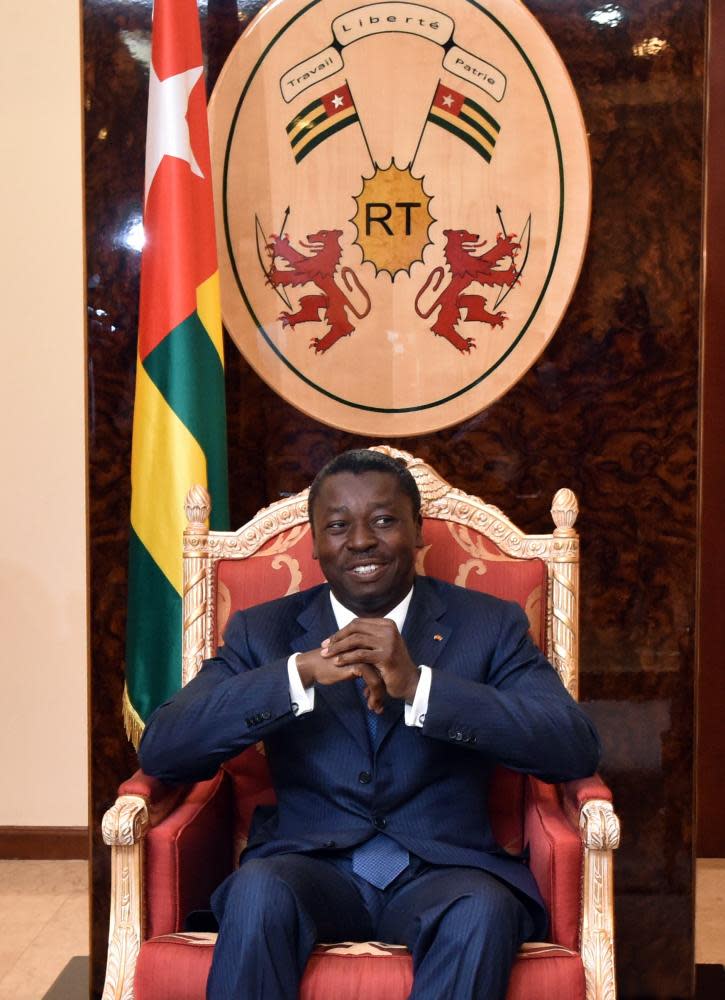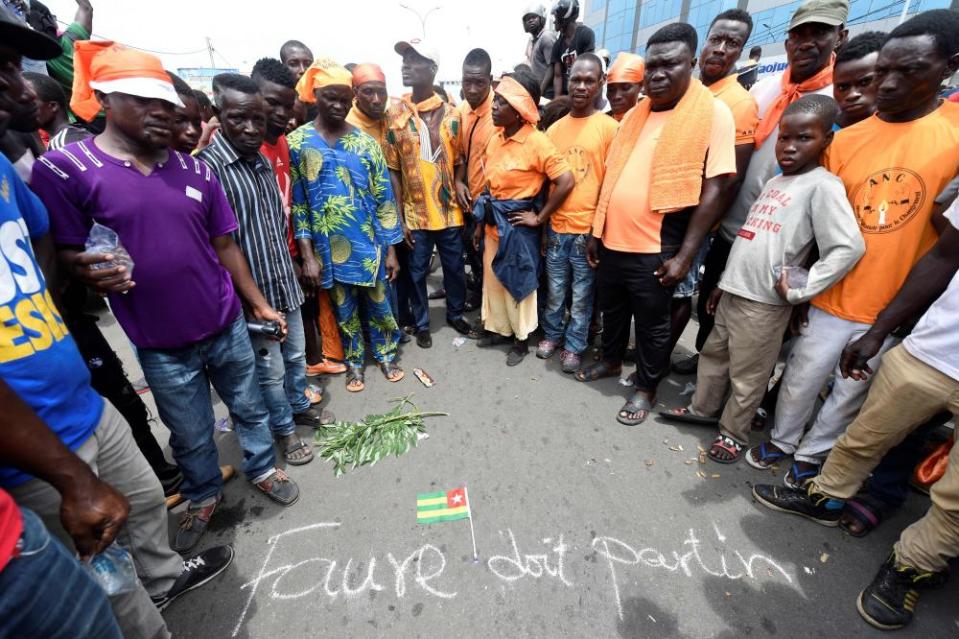No business, no boozing, no casual sex: when Togo turned off the internet | Mawuna Koutonin

On 5 September, at about 10am, the government of Togo cut off the internet. The plan was to limit the threat from a growing number of young people around the country who were mobilising online and talking of toppling the government.

Throughout August, opposition parties in Togo had been organising protests as frustration grew over the reluctance of the ruling Gnassingbé family to relinquish the power they have held for 50 years.
With more protests planned for the beginning of September, Gnassingbé’s government – which his political opponents have long sought to oust – took action. The internet was closed for business. Text messages were blocked and international calls filtered.
Leaving aside politics, it was a unique opportunity to observe the effect of internet deprivation on a country. During the week-long shutdown, I talked to friends. I interviewed strangers. For many, especially the young, it was a first taste of how state power could affect their personal life.
Initially, people were confused. Some tried restarting their phones or computers. Internet subscriptions were renewed and mobile data plans topped up. Telecom company employees were accused of the usual appropriation of credits, while engineers were branded incompetent.
After a few hours, though, the penny dropped: we realised the government had shut down the internet.
For many people in Togo, the internet is WhatsApp. People went online or bought a smartphone just for WhatsApp. In many encounters, I’d say, “They cut off the internet,” and people would respond, “Yes, WhatsApp is not working.” So the local lexicon had to be enriched with this new word, “the internet”, as radio and TV reports talked about the situation.
On that first evening, bars and restaurants were deserted. People were afraid. They talked of keeping money in case things went wrong, in case the the banks closed or the government was unable to pay wages. Many among the upper middle class rushed to the bank to stockpile cash. But nothing was working during the first hours, because the internet had been cut.
Virtual business, it turned out, might not be suitable for dictatorship-prone countries
In all likelihood, sexual activity also dropped off. WhatsApp is the country’s biggest dating app and casual sex is commonplace. Togo has high youth unemployment and the economic situation is harsh, but there is a culture of sexual freedom. Marriage is as rare as diamonds nowadays, while sexual vagabondage is well tolerated and well spread.
One friend said the internet shutdown had moved the dating market upscale. With WhatsApp, penniless guys would send women virtual flowers and rings. Now, they had to find money to buy real ones. Men who previously sought to impress ladies by copying and pasting cute quotes and images on social media now had to go out, bring friends together in a bar, pay the bill and prove their real verbal and intellectual skills.
Another surprising effect was that productivity rocketed. Togolese people, from civil servants to police officers, often need to be dragged away from WhatsApp; now, they could get on with their work. Outside the workplace, without smartphones as a distraction, and with free time forcibly laid before them, people started talking to one another more; they walked in parks, enjoyed the outdoors.
A couple of days in, I was conducting a technical workshop. The attention level in the room was close to that within a Buddhist temple. At the end, an attendee came to me and said she had never felt so engaged during a seminar. She wondered whether it was because of my performance or because there was no internet to distract her.

Interest in reading surged. It was heartwarming to see restless kids and adults embracing dusty books and magazines . Spontaneous conversation with strangers surged; asking about the status of the internet became the equivalent of “Have you got a light?” – a conversation starter.
Social gatherings improved dramatically. Conversations were lively, as they had been in the days before social media. That old thing called family dinner lasted longer. Without interruptions, it felt as though people were more caring, more available to each other. Was this just nostalgia?
After a week, the government abruptly switched the internet back on. For thousands of businesses and professionals who depended on the web for work, it had been a highly stressful period. The shutdown had undermined their faith in the fragile digital transition. Companies that had moved their core business applications into the cloud could neither access their tools nor retrieve their data. Virtual business, it turned out, might not be suitable for dictatorship-prone countries. . We have yet to get a broad sense of the impact of unanswered urgent emails and lost opportunities.
Families who depend on remittances through Western Union or MoneyGram all suffered too; they could not get the codes to retrieve their money and the banks couldn’t serve them.
The government could have been smarter. The best way to divert our youth from politics would have been to give them free, unlimited internet access a few days before the protests, and drop the price of beer and condoms – all the while playing “Be safe, live long” songs on the radios. The youngies would have been watching porn, WhatsApping and YouTubing, and would have been too distracted to think about politics.
Shutting down the internet achieved the opposite. Far from limiting youth mobilisation, it galvanised word of mouth and turned many neutrals against the regime. To young people for whom the internet had become so much part of the daily routine, the shutdown felt like an intrusion, a burglary of their personal life.
Previously preoccupied mostly by sex and alcohol during the long two months of the school vacation, our youth were bloated with testosterone and boosted by a huge surge in political consciousness. They started gathering, talking to each other, commenting on the moves and motives of political leaders. The shutdown brought more people into the political stream.
It was also a lightning rod for discontent among foreign business people living in Togo. They were suddenly denied their preferred channel of communication, making it impossible for them to reach out to families and friends back home. Naturally, most joined the chorus of opposition to a regime whose largesse they had previously enjoyed.

I now have an experience to boast about; I’m a member of an exclusive club of countries that shut down the internet without going back to the stone age. Tell me, how many people in the world have lived under a dictator who could shut down the internet on a whim? My country just entered the Guinness World Records book as one of the top dictatorships. Any fame is better than no fame.
In the end, the shutdown was overwhelming stressful and negative. It was like living in a open prison: you could not reach out to your loved ones and they could not reach out to you, because someone had decided so, and was actively enforcing it against your will. Our lives have moved online to the point where an internet blackout is like a high security prison.
It’s not because one could have more time to read books when in prison that we should hail prisons.

 Yahoo News
Yahoo News 
